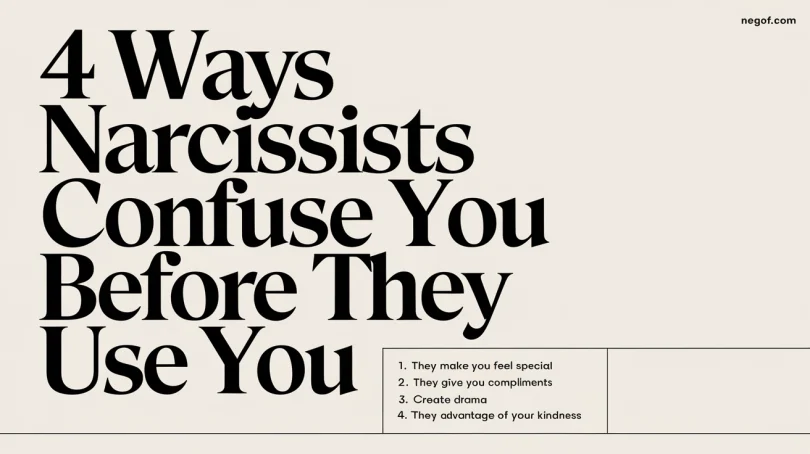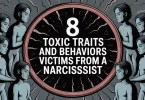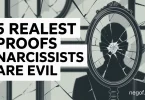How Narcissists Create Conflict Alright, let’s break this down because one of the first ways narcissists keep control (and keep you distracted) is by creating conflict without ever looking like the one who caused it. All they have to do is turn you against someone else and let you do their dirty work for them. They stir the pot. They whisper things. They drop little hints. They might offer suggestions with just enough poison to shift your energy. And they do it in a way that makes you feel like you came to that conclusion all on your own.
Suddenly, you’re maybe questioning a friend or side-eyeing your support system. Maybe you’re pulling back from people who had your back. Because when a narcissist needs power, they don’t start with control. They start with confusion.
Exploiting Vulnerabilities
What happens is, they’ll find a kernel of truth. If they see a crack in the foundation like, say, you argued with a close friend they’ll come in and start planting seeds. This is when they start using your values against you. They’ll try to prove that this person isn’t on your side, that they don’t share your values. They might even convince you that you’ve “grown apart.”
And this doesn’t just happen in friendships. It happens in families all the time where the narcissist isolates someone from their support group. If you pause and start paying attention, you’ll notice something: you never had so much conflict in your life before the narcissist came around. And now? Suddenly, arguments are everywhere.
You blame yourself for them. You take full responsibility. Because it feels like it was your choice. And in a way, it was. But there may have been someone pulling the strings the whole time.
Related Topics:
7 Ways to Torture A Narcissist
Ask THIS 1 Question to Expose a Narcissist Instantly!
How Narcissists Remain Hidden in Plain Sight?
6 Ways to Handle Narcissists False Accusations
The Power of Confusion
They create just enough friction to make you feel like something’s off but not off enough to know exactly what. So you spin. You try to make sense of it. You fill in the gaps with your fears and insecurities. And that’s the point. They know you’ll do that. Because now, instead of noticing what they’re doing, you’re too busy trying to keep the peace in your own life or trying to win a fight or prove yourself to someone who’s not even in the room.
All this manipulation? This is how they stay clean. It’s how they stay in control without actually looking like they’re controlling anything.
A Systematic Playbook
What we’re talking about here is a system a playbook. And it shows up everywhere. Not just in personal relationships you’ll see it in families, where one person manipulates behind the scenes while everyone else walks on eggshells. You’ll see it in communities, where blame gets tossed around while the actual cause of the pain stays hidden. And yes, you’ll notice it in bigger, broader places too. Because when people are fighting each other, they’re not asking the real questions. They’re not seeing the bigger game.
So the narcissist sits quietly in the middle of the mess they made looking innocent, sometimes even heroic, like the peacemaker in all of this. But underneath it all, they lit the match. And now they’re just watching it all burn. Let’s be real they don’t want clarity. They want chaos. And as long as they can keep you emotionally hooked on the wrong enemy, they win.
False Morality and Manufactured Outrage
But division is just one part of the strategy. Once you’re isolated, the next move is even more subtle, even more personal. That’s where the narcissist’s false morality comes in. False morality almost always goes hand-in-hand with manufactured outrage. See, when a narcissist wants to control you, they don’t just go after your weaknesses. They go after your values your kindness, your empathy, and your commitment to doing what’s right, even when it’s hard.
They learn what matters to you, what you stand for, and most importantly, what you can’t stand in other people. Let’s say the thing you can’t stand is lying. Sure, everyone tells white lies, and there are different scales of liars out there. But if you’re someone who can’t stand dishonesty especially when it’s unnecessary that’s going to be something you rebel against in yourself too. So you go to great lengths not to be that person. You’re probably more honest than most people you know. You tell the truth even when it’s hard.
But maybe there’s a moment where you don’t want to answer a question. You’re allowed not to. But say the narcissist is the one asking and you say something like, “I don’t want to talk about that right now.” Instead of respecting your boundaries, they twist it.
They tell you that not sharing is the same thing as lying. And this is how they start to break down your boundaries, how they get you to second-guess yourself. Because you’ve always seen yourself as honest. Other people see you that way too. But now they’ve found a crack. And they exploit it. They rip it wide open.
Undermining Your Identity
Pretty soon, you’re questioning whether you’re a hypocrite, whether maybe you do lie more than you thought. Maybe other people think so too. That’s false morality. The narcissist is acting like they also hate lies when you know they’ve lied to you, probably many times. But because your resistance to lying is so strong, it’s easier for them to make you feel like you’re the one doing it.
This is why boundaries matter, especially around someone skilled at twisting your truth. In their world, saying no makes you selfish. Needing space makes you cold. Not replying fast enough makes you mean. And speaking your truth? That makes you a liar. But it’s not just the label that hurts it’s what the label represents.
Now they’ve made you feel like you’re becoming the very person you can’t stand, maybe even the person they already turned you against. If that’s happened in your life it wasn’t an accident. It was a strategy.
The Cost of Manipulation
So now you pull back. You over-explain. Or you stay silent just to prove to them (and to yourself) that you’re still a good person. But here’s the part that cuts the deepest: you start to lose your grip on who you are. You stop trusting your gut. Because now every time you speak up, it feels like a betrayal of the identity you worked so hard to live up to.
Once they’ve distorted your values like that, they don’t have to yell or fight. You’ll do all the heavy lifting for them. You’ll self-police. You’ll sacrifice your peace just to avoid becoming the person they told you you were turning into.
Because when you’re caught between being true to yourself and proving you’re not the villain they win. They create two sides, and you feel like you have to pick one: good or evil, right or wrong. And as those lines get blurrier, you’re no longer even sure which side you’re on or what you’re fighting for.
Reclaiming Your Truth
This is what narcissists do. They use your highest values as weapons. And they turn your kindness into compliance. So if standing up for yourself has ever made you feel like the bad guy… if you’ve pulled away from your truth just to avoid looking like the enemy… it’s not because you’re broken. It’s because you were manipulated. And once you see it see it you don’t just get your power back. You get your identity back.
Seeing the Real Enemy
Now, the next piece of this is just as disorienting because once you’ve stepped out of the role they gave you, you start to see who the real enemy was all along. And the real enemy? It’s never who you think. One of the hardest parts of waking up from narcissistic abuse is realizing the person you were defending yourself against wasn’t the problem. And sure maybe they were problematic. But they weren’t the ones wreaking havoc in your life.
We’re talking about the friend you cut off, the sibling you snapped at, or even the version of yourself you turned against just to make things work. None of those were the true enemy. If we’re talking about other people, they may have just been reacting to the same manipulation but from a different angle.
And while you were fighting them, the narcissist stood quietly in the middle, playing both sides, feeding each fire just enough to keep it going. Because when people are angry, they don’t look too closely at where that anger came from.
The Scapegoat Strategy
Think about it. You’re having a bad day. Someone cuts you off in traffic. That person becomes the entire target of your anger. You’re not thinking about the hundred other things that went wrong today just that moment, that one person. And the narcissist knows that. As long as they can get you fired up and point you in a different direction off you go. That’s why they’re always happy to offer a scapegoat.
While you’re out there trying to untangle what’s real and what’s not, they’re out of the spotlight. They’re clean, untouched, innocent. And that’s exactly how they keep control. Because if you ever turned around and asked, “Wait… why did we even start fighting in the first place?” the whole thing would unravel. And that’s the moment they fear the most: the moment people stop fighting and start talking, the moment you realize the person you were taught to hate isn’t the one who’s been hurting you. And the narcissist? They’ve known that the whole time.
Breaking the Cycle
So the conflict stays alive. Because as long as you’re defending something yourself, your side, your story you won’t see the bigger picture. But once that fog clears, once the pattern clicks into place, everything shifts. You stop arguing. And maybe just maybe you start remembering who you were before they handed you a script. And that moment right there? That’s when the whole system starts to fall apart not with a fight, but with clarity.
The Trap of Picking Sides
Unfortunately, that clarity brings you to the next trap: the side you chose while you were in it. Because here’s the deal picking a side is a trap. If you’ve ever been a flying monkey for a narcissist, you know exactly what I’m talking about. Now, there’s nothing wrong with standing for something.
There’s nothing wrong with having values, speaking out, or taking action. But the moment your values feel more like an obligation than a choice you’ve got to stop and ask: “Who handed them to me?” Because if they were truly yours, they wouldn’t feel so heavy.
That’s how they hook you. They turn your identity into a role. Who you are could be fluid and free. Who you spend time with can shift depending on your own life and needs. But narcissists like to control those things. So they have to convince you that this other person on your terms is “bad.” They don’t just use fear or guilt to control you (though they’ll do that too).
They hand you a script. They tell you who the bad guy is, what you should believe, what “loyalty” looks like. And once you pick a side, you stop questioning things. You stop checking in with yourself. Because now you’ve got a role to play: “It’s me against them.”
The Weight of a Hijacked Identity
And once your identity is tied to being on the “right side,” anything that threatens that starts to feel like a personal attack. And here’s the part most people miss it doesn’t just happen in politics or culture wars. It shows up in relationships too.
Maybe your ex made you feel like you had to prove your loyalty by cutting someone off. Maybe they convinced you your friends were toxic, that your therapist didn’t “get it,” that your family didn’t care. So you picked them. And at the time, it felt like standing up for your values, for your independence, for your truth.
But looking back? It wasn’t your truth. It was a choice you made to feel safe, to keep the peace, or maybe just to feel loved and appreciated. And let’s be honest the more emotionally charged the situation, the easier it is to confuse survival with alignment. At first, it felt like alignment because someone was whispering in your ear, telling you it was, encouraging you, reassuring you. So you went along with it.
Reclaiming Your Authentic Self
But over time? Things shift. You start to have doubts. The person doesn’t feel right anymore. The choice feels heavy. But changing your mind? That’s a massive undertaking. And the narcissist who helped you make that decision? They’re going to make you feel like changing your mind is a betrayal of who you are. But listen the problem isn’t that you have strong values.
The problem is when those values are hijacked for someone else’s gain. Because the narcissist doesn’t care what you believe as long as what you believe keeps you where they want you.
So the work isn’t to shut down. And it’s not to stay neutral. The work is to strip away all the noise and ask yourself: “Is this me?” And when the answer is yes? When it’s your truth? You’ll know. Because it won’t feel like panic. It won’t feel like defending or proving anything. It’ll feel like peace. It’ll feel like clarity. You won’t need to explain it to anyone because it’ll be so rooted in who you are, it’ll feel like coming home.
Standing Firm Without Division
And here’s something we all need to remember: you don’t have to pick a side to stand firm in your values. You don’t need someone’s permission to walk away from something that stopped making sense a long time ago. All this stuff we’re talking about? It’s a big part of how narcissists stay in control not just through love bombing or lies, but by creating confusion: confusion about who you are, what’s right, and who the real enemy even is. And when you’re stuck in that confusion long enough, you stop asking the deeper questions. You just try to survive. You try to keep the peace. You try not to be the “bad guy.”
The Purpose of Confusion
But the confusion? That was never an accident. It was the point. Because the longer you’re spinning, the less likely you are to notice what’s going on. So you pick a side. You cling to a version of the truth that helps you feel safe. And it works… for a while. Until one day, you find yourself defending things that don’t quite sit right with you. Until you look in the mirror and realize you’ve become disconnected from who you are.
And that’s when the fog starts to lift not because someone gave you a better argument, but because something inside you finally got quiet enough to hear the truth again. The story you were handed was only ever designed to keep you from writing your own. And here’s the part they don’t want you to know: you’re allowed to change. And when you do? They lose control.







Leave a Comment